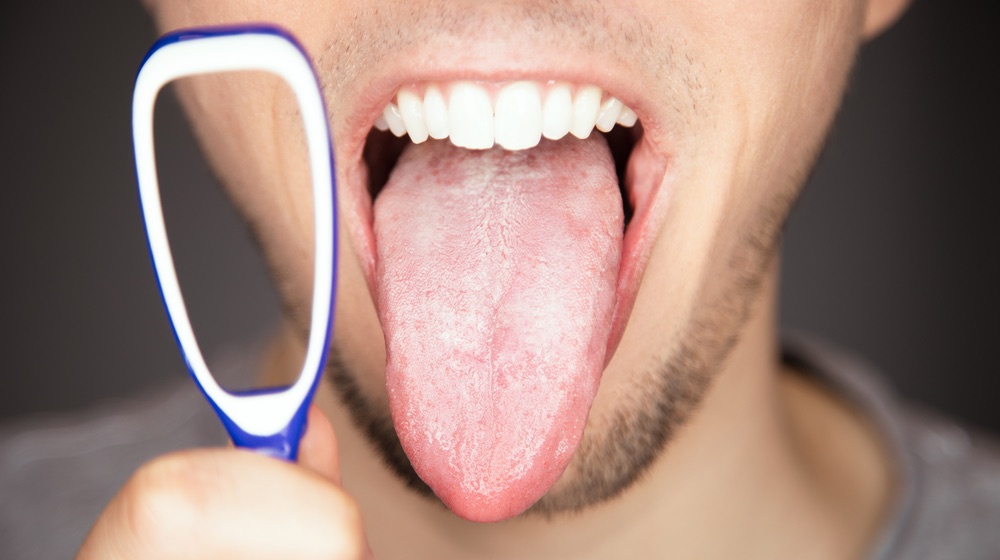Starting Over at 50: How To Deal With 10 Major Changes In Men
The male body undergoes numerous changes at 50 that call for lifestyle changes. Let's talk about starting over at 50.
With age comes wisdom, great stories to tell, and spectacles. Yes, life at 50 is different, your body will change and your habits in your 20s and 30s will start catching up to you.
With these new changes come new habits and changes we need to introduce to daily life.
Starting Over at 50 | What to Expect and What to Do
1. Brittle Bones

Calcium is one of the most abundant nutrients in our bodies and plays key roles in many bodily functions. Unfortunately, as we age our calcium absorption decreases. Bone-related illnesses occur quite late in life, but there are many things we can do early on to prevent these. Osteoporosis does not need to be inevitable.
Allot 30 minutes everyday for strength training to help build and maintain bone mass. Make sure to get sufficient vitamin D through your diet, for older adults, it's impractical to get your daily dose from sun exposure. Down eight ounces of low-fat milk everyday in addition to eating foods fortified with calcium.
Book an appointment with your physician to catch early signs of calcium deficiency. Your doctor may also advise you to get vitamin D supplements or may recommend helpful lifestyle changes.
2. Starting Over at 50 | Andropause

Andropause involves a drop in the male hormone observed in men over 50 years of age. While it is still a controversial topic with many studies still trying to create a clear clinical picture and definition, it has crucial implications ranging from cognitive decline to lower quality of life.
Andropause is characterized by:
- lower sexual libido
- less intellectual activity
- depression
- fatigue
- changes in skin appearance
- lower bone density
- lower muscle density, muscle strength
- increase in visceral fat, obesity
While andropause doesn't strike all men, it's great to precautions. Studies suggest that properly managing your health and maintaining a healthy lifestyle help control andropause. This means visiting your doctor regularly, exercising daily, and keeping your plate colorful and diet fast food-free.
3. Decline in Muscle Mass

Sarcopenia is common amongst the elderly, but its development happens earlier on. It's characterized by the decrease in muscle mass and strength, leaving those affected weakened and frail.
As you hit 50 years old, you begin to lose 1% to 2% of your muscle mass. Fret not, a quick and simple lifestyle change is all it takes to keep it at bay.
You may combat this earlier on by taking care of your nutrition and exercising daily. Keep your muscles strong by doing resistance training paired with having protein-rich meals. Begin your day with push-ups and pull-ups, simple exercises that make use of your body weight. Get off the couch and take a nice and relaxing jog in the park.
4. Enlarged Prostate

It's common, but it is also not life-threatening. When the prostate enlarges, it presses on the urethra and eventually weakens the wall of the bladder. For this reason, most symptoms of benign prostatic hyperplasia (a.k.a. enlarged prostate) are related to bladder control.
It affects 50% of men between 51 to 60 and 80% of men aged 80 years and up.
Book an appointment with your doctor who may refer you to a urologist or recommend appropriate lifestyle changes. Lifestyle changes include limiting water intake, consuming less coffee and alcohol, and training yourself to hold in your urine for a long time. Your doctor may also recommend medicine or more invasive procedures.
Unfortunately, no studies have shown that it's preventable, but there are things that you can do to assist in its treatment. And it all begins with a visit to the doctor.
5. Hearing Loss

Loud noises, buildup, and punctured eardrums are some of the causes of hearing loss. Scientists still aren't certain what factors lead to age-related hearing loss, but it is common in older adults. For those more mature in age, age-related health conditions like high blood pressure or diabetes may also contribute to hearing loss.
Visit your doctor if you feel you have trouble with your hearing. Your primary care physician might then refer you to an ENT, audiologist, or hearing aid specialist. What you can begin doing now is staying away from loud areas or turning down the radio or television a notch. Protect your ears however you can and let your family and friends know if you're having a hard time hearing them.
6. Starting Over at 50 | Poor Eyesight

Age takes a toll on all our senses, and our eyesight is no exception. Cataracts, glaucoma, and age-related macular degeneration (ARMD) are a few age-related health conditions that come with gray hairs. Luckily, these may be preventable.
Mounting evidence shows that good health practices such as not smoking, maintaining a healthy weight, and regular exercise may help keep age-related eye problems at bay. Shielding your eyes with sunglasses may also help age-proof them.
Starting in your 40s, add a regular visit to your optometrist to your schedule in addition to your primary care physician.
7. Decrease in Cognitive Function

As we age, our ability to process information or our cognitive function begins to decline. You may experience trouble in decision-making, remembering things, focusing, or process information slower than before.
More and more studies provide studies provide evidence that practicing a healthy lifestyle may help delay and decelerate cognitive decline. Regular exercise, constant mental stimulation, managing stress, and steering clear of alcohol may help keep your brain healthy. Start your day with a morning walk or exercise, read a book after a nutritious breakfast, and maybe exchange your beer for tea.
One study showed that older adults that drank coffee in the morning showed no cognitive decline throughout the day compared to those that drank their coffee decaffeinated. While this requires further research and evidence, it's a good enough reason to grab yourself a morning cup of joe.
8. Dental Issues

By the time you hit your 50s, your gums will begin receding, exposing more of your teeth. It's also common for older adults to have dry mouth. This leaves you more prone to gum diseases, decay, and infection.
Practice proper dental hygiene. Brush your teeth twice a day and floss once a day. Visit your dentist for regular checkups and your dental hygienist for regular cleanings.
9. Weaker Immune System

As you age, your immune system becomes less efficient and the effects of stressors from earlier in life may finally manifest, targeting your immune system and nervous system. Vaccines may not perform as well in older adults, leaving you at greater risk.
Make sure to eat a nutritious and vitamin-rich meal three times a day, stay away from sugar and highly processed foods. Age may make it more difficult for you to move, but just 30 minutes of exercise may have a large impact on your overall health. Easier said than done – minimize chronic stress as it may may worsen the effects of aging. Engage in relaxing activities like yoga, reading, or even gardening.
10. Starting Over at 50 | Weight Gain

A combination of different factors contribute to weight gain as you age. You may lose muscle mass, which slows your metabolism. You may also retain more fats and live a more sedentary lifestyle.
While there is limited literature that suggests more exercise helps fight weight gain among older adults, one study suggested that high-intensity training, eating low-fat and low-calorie meals may help control weight gain. This will help you build and strengthen your muscles while burning more fats and calories than you consume.
Your body undergoes numerous physiological changes as you age and may require more TLC than in your younger years. The main takeaway from this is to live a better lifestyle through a healthy diet and exercise, all while keeping everything in moderation. The benefits of eating healthier and constant exercise extend beyond keeping a good waistline, it may also extend your healthy lifespan so that you can continue to enjoy your 60s.
Simple changes in habits may help you look young and feel young well into your 50s. While a tall glass of beer may help you relax at the end of the workday, a vitamin- and antioxidant-rich cup of tea may prove to be better. If you're not too tired, perhaps take the stairs instead of the elevator.
It's time to forget the age-old adage, “An apple a day keeps the doctor away.” At this point, you'll be needing more visits to the doctor in addition to an apple a day.
Do you now feel more prepared and empowered to start over with a new lifestyle at 50? Share your thoughts with us in the comments section below!
Up Next:
- 13 Food To Eat and Avoid When You Are Over 50
- 5 Simple Core Exercises for Seniors
- How To Prevent and Reduce Under Eye Wrinkles
Are you an advocate of feeling better, looking better, and living better and would love to contribute? WRITE for us!
Follow us on Facebook, Twitter, Instagram, and Pinterest! Don’t forget to subscribe to our Youtube Channel for amazing ideas about living a better life.
Trending
Tongue Color | 7 Scary Tongue Color Meanings
Lecithin Benefits and Side Effects: 10 Surprising Truths
Get Updates
SIGN UP FOR OUR NEWSLETTER TODAY

Best Multivitamin for Men | Top 10 Best Multivitamins for Men 2022

Tongue Color | 7 Scary Tongue Color Meanings

Lecithin Benefits and Side Effects: 10 Surprising Truths
Related

Best Multivitamin for Men | Top 10 Best Multivitamins for Men 2022

